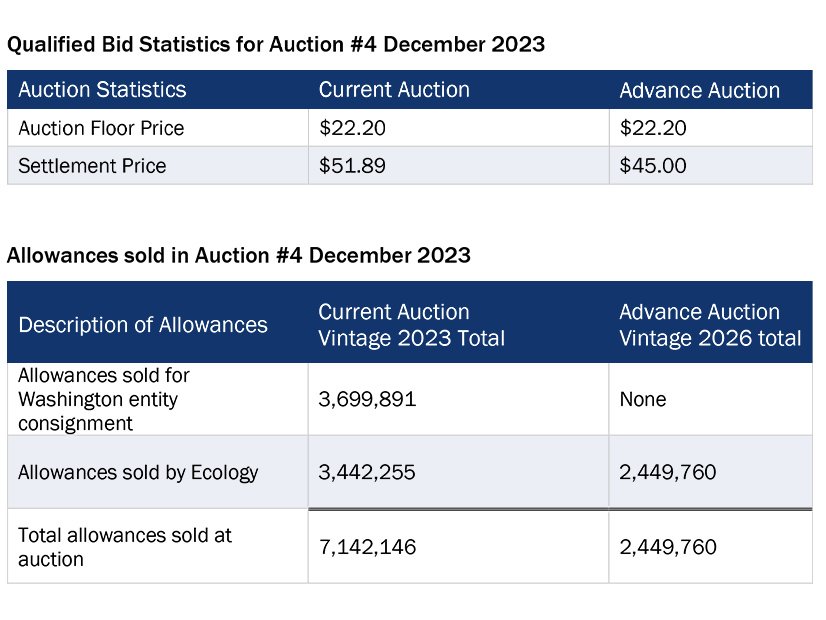Washington raised another $373.6 million in its final carbon emissions allowance auction for 2023, the state Ecology Department announced Wednesday. That translates to the state raising slightly more than $2 billion in 2023, the first year of what the state refers to as the “cap-and-invest” program.
In Washington, carbon-emitting corporations bid every three months on state allowances for the pollution emitted by their facilities. The winning bidders all pay the same price on these allowances after the auction. The “settlement” prices in the first few Washington auctions were $48.50 for roughly one metric ton of carbon for the first quarter of 2023; $56.01 for the second quarter; and $63.03 for the third. The result of the Dec. 6 auction, which was announced Wednesday, was a settlement price of $51.89 per allowance.
The cap-and-invest system, passed by the Legislature in 2021, is aimed at decreasing carbon emissions to a fraction of their current levels by 2050. The program has been linked to an increase in Washington’s price at the gas pump from 15 cents to 50 cents per gallon, depending on who’s doing the calculating. Republicans have been slamming Democratic Gov. Jay Inslee over those increases.
Washington traditionally has had one of the highest gasoline prices in the nation due to various geographical and economic factors outside of the cap-and-invest program.
The Washington Legislature has appropriated $2.1 billion in cap-and-invest revenue to be spent on numerous climate mitigation programs from July 1, 2023, through June 30, 2025. On Monday, Inslee announced the state expects to collect $941 million in extra cap-and-invest program money in the first half of 2024, bringing the overall income to roughly $3 billion over the system’s first 18 months.
The extra $941 million will be added to Inslee’s 2024 supplemental budget request to the Legislature in January. It’s up to the Legislature whether it will approve some or all of that request, which includes:
-
- A one-time $200 credit to the utility bills of roughly 750,000 low- and moderate-income households in Washington;
- Speeding up the transition from diesel school buses to electric zero-emission school buses across the state;
- Installing electric heat pumps in low-income multiple-family homes, replacing gas heat;
- Providing matching funds for competitive federal grants to obtain clean energy jobs; and
- Converting a large diesel ferry into to a hybrid fuel-electric ferry. Washington’s ferries are breaking down in increasing numbers. Inslee said Monday that future cap-and-invest income could speed up replacing the old ferries with new hybrid ferries.



